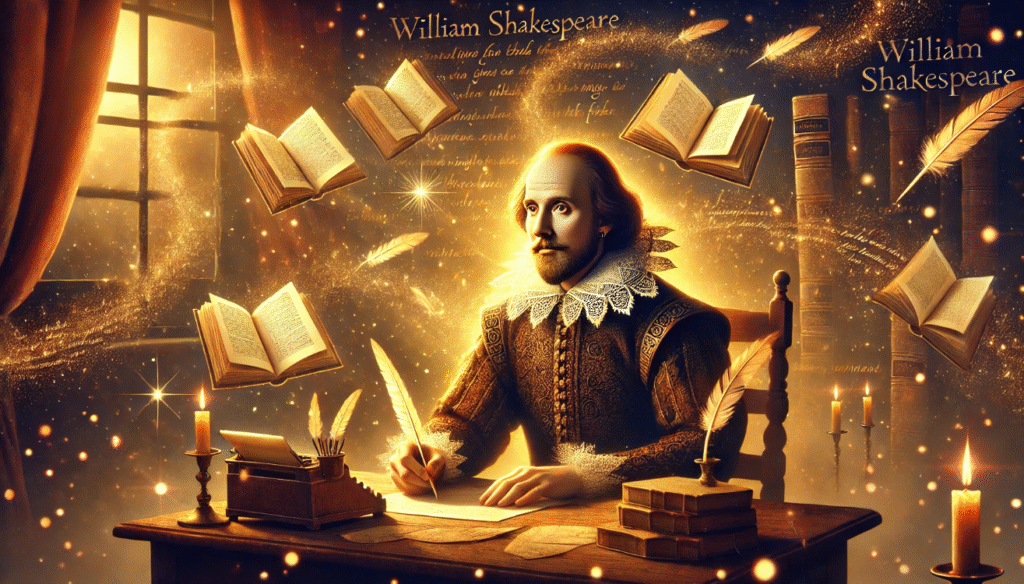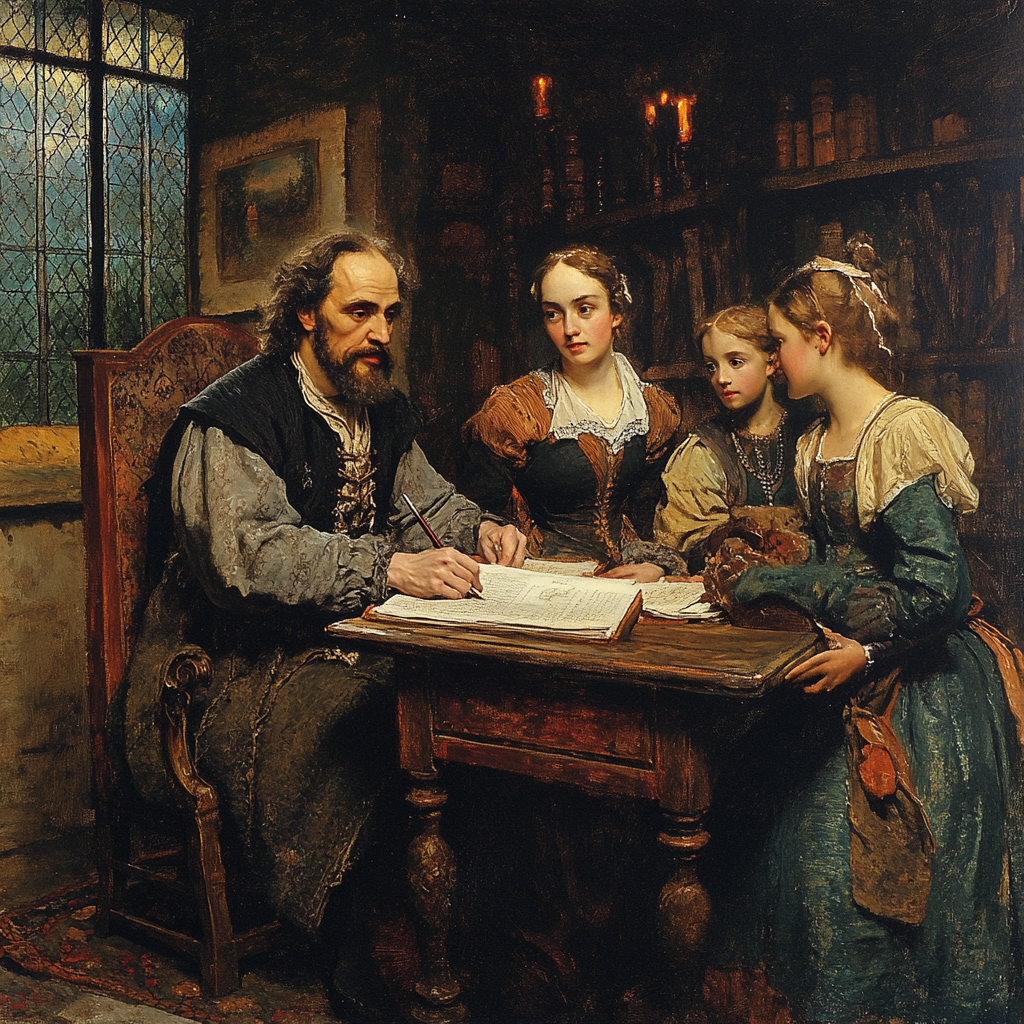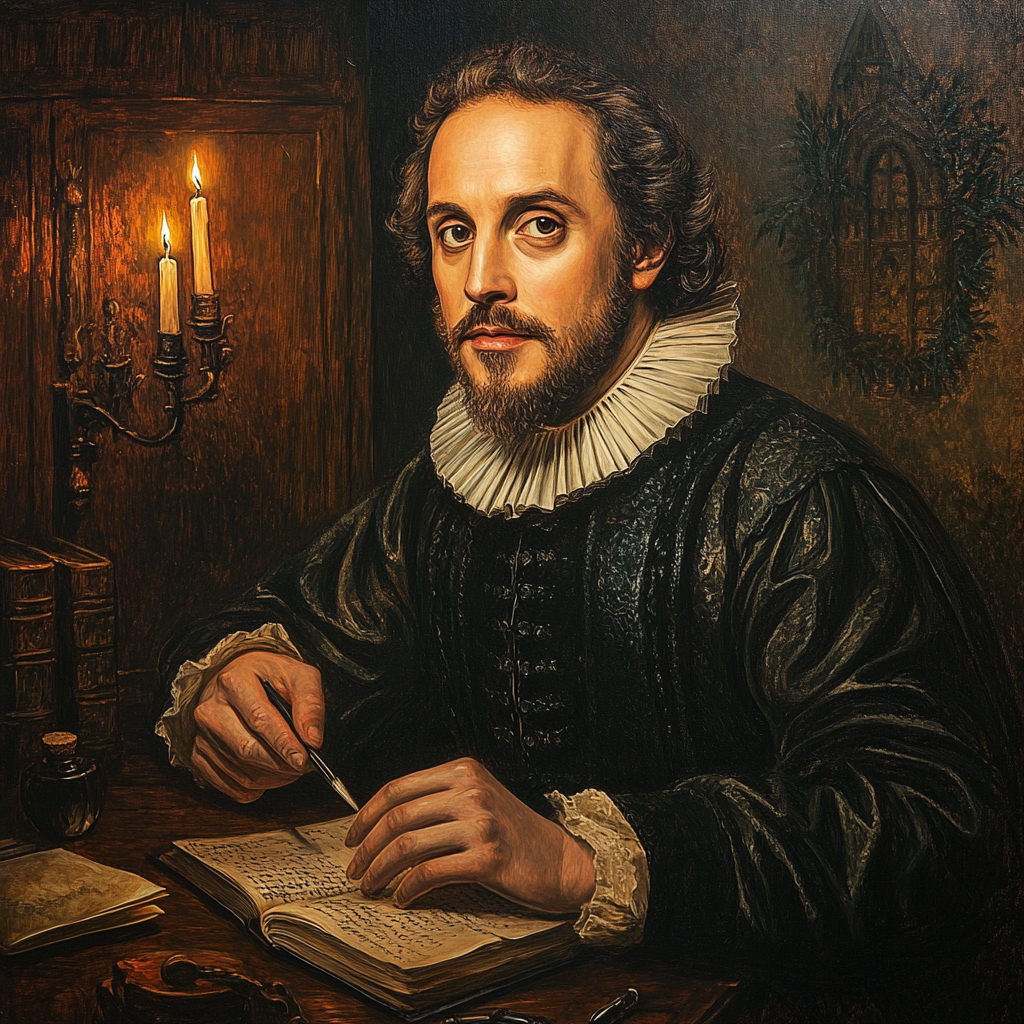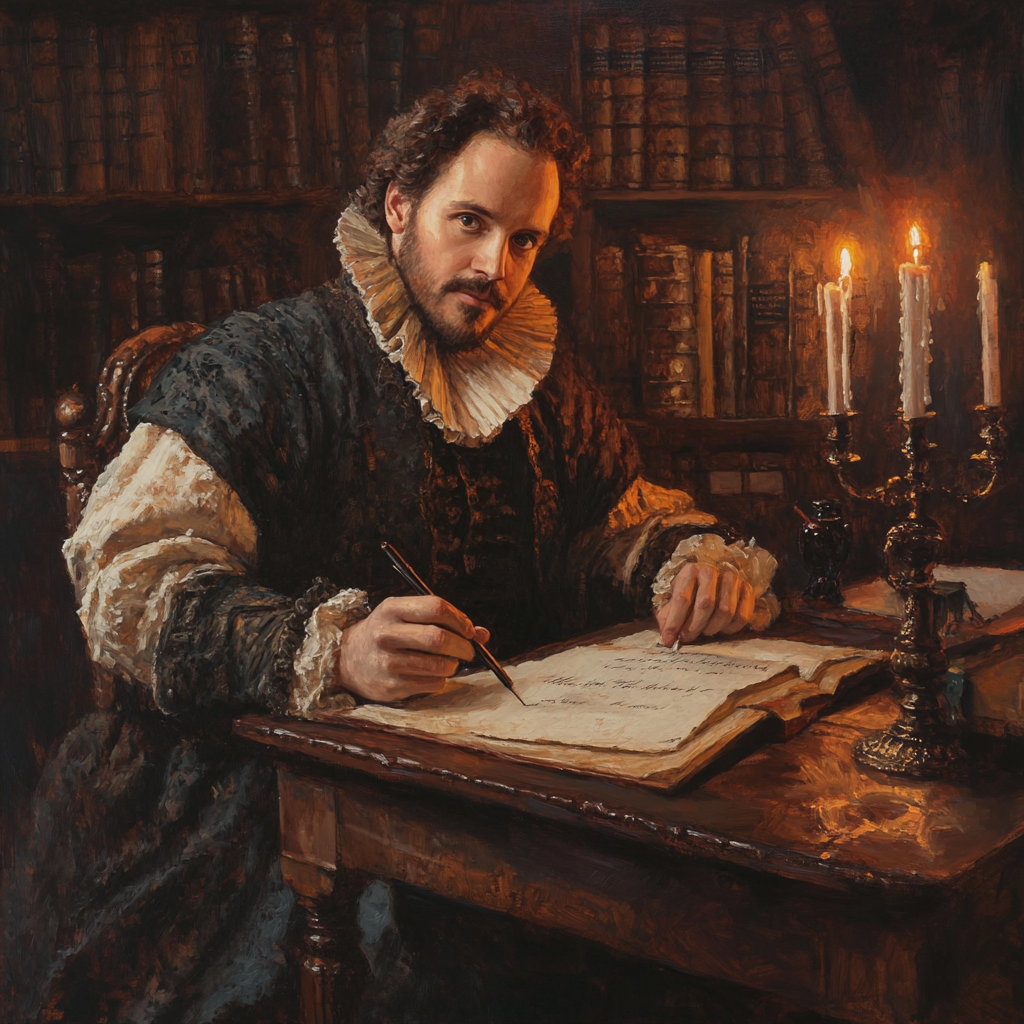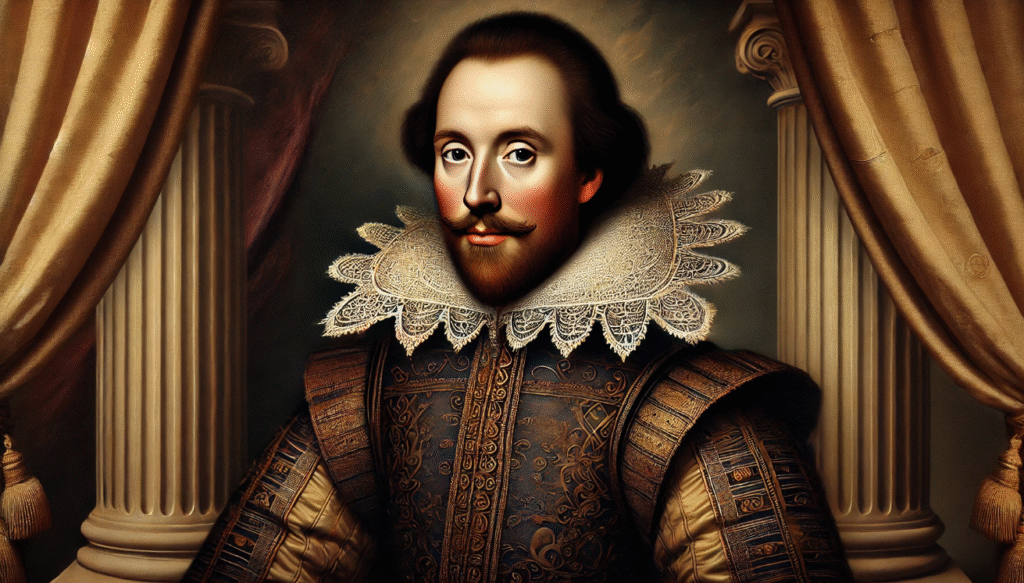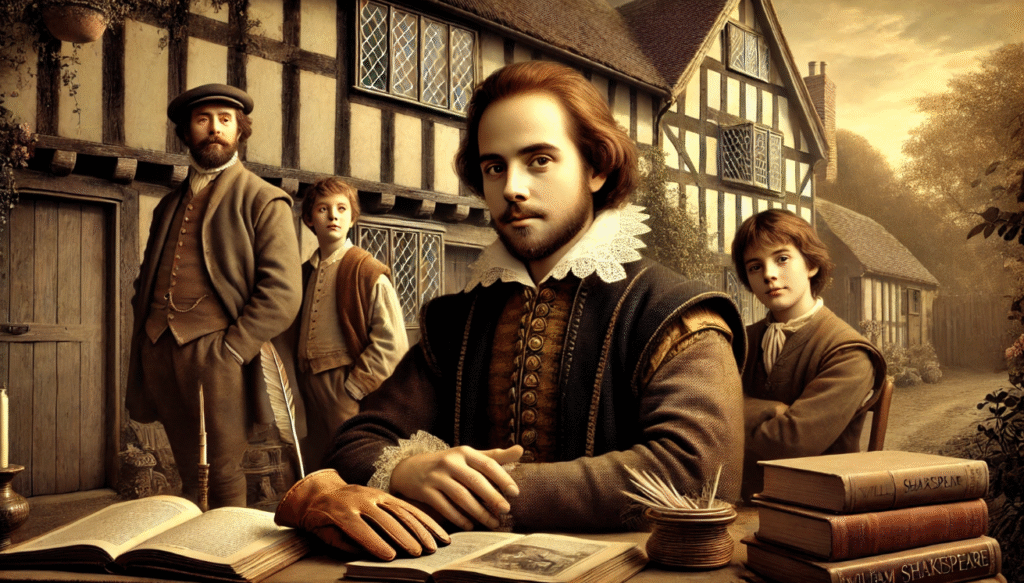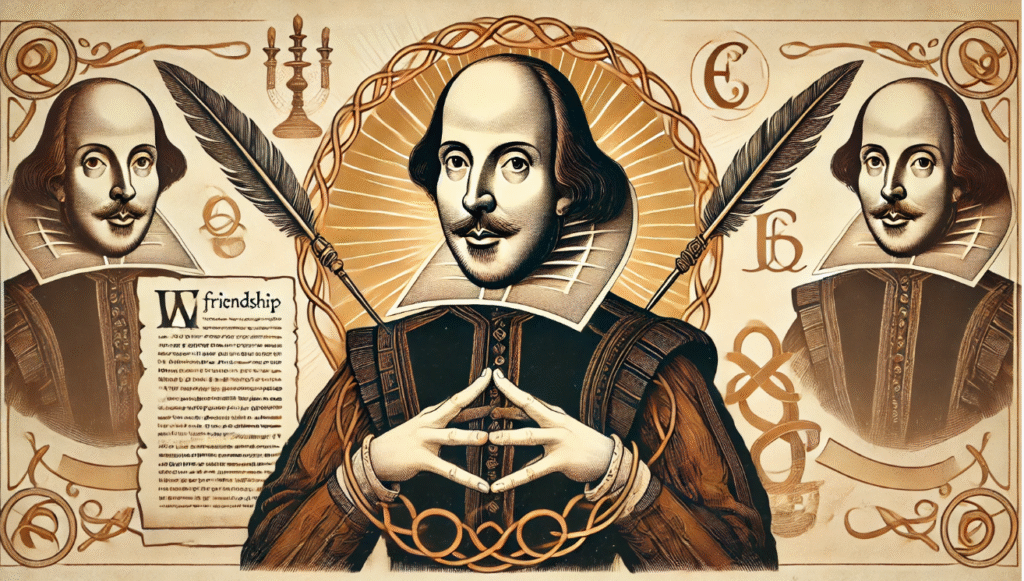Shakespeare’s impact on future literature influence on literature is undeniable, as his timeless works continue to shape and inspire countless writers across generations. From his iconic characters to his mastery of language, Shakespeare’s impact on the literary world cannot be overstated. Understanding his influence is crucial for appreciating modern literature, as his themes and storytelling techniques are still prevalent in today’s works. Whether it’s a modern retelling of one of his plays or a subtle nod to his writing style, Shakespeare’s legacy continues to be an integral part of the literary landscape.
Shakespeare’s Revolutionary Approach to Literature

Innovative Use of Language:
The introduction of new words and phrases into the English language is a natural and ongoing process. Words and phrases are constantly being coined, borrowed, or adapted to meet the changing needs of communication. This influx of new language can come from a variety of sources, including technological advancements, cultural shifts, and the influence of other languages. One notable example of the introduction of new words and phrases into English can be seen in the works of William Shakespeare. Many of the words and phrases he coined or popularized in his plays and sonnets are still in use today.
Mastery of Poetic Forms:

The influence of sonnets and iambic pentameter on poetry and drama cannot be overstated. The rhythm and style set by poets such as William Shakespeare have become a standard for poets and playwrights to follow. His use of iambic pentameter, with its ten-syllable lines and alternating stressed and unstressed syllables, has provided a framework for countless writers to craft their own works. Additionally, Shakespeare’s mastery of the sonnet form, with its 14 lines and specific rhyme scheme, has inspired poets to explore themes of love, beauty, and mortality in their own verse. Overall, Shakespeare’s influence on sonnets and iambic pentameter has had a lasting impact on the world of poetry and literature.
Exploration of Universal Themes:
Themes like love, power, betrayal, and ambition have been prevalent in literature for centuries, resonating with readers and writers across different eras. Love, for example, is a universal theme that has been explored in countless works of literature, captivating readers with its ability to evoke strong emotions and connect with the human experience. Power, on the other hand, has been a source of fascination for writers and readers alike, as it delves into the complexities of human nature and the dynamics of authority. Betrayal and ambition also hold timeless appeal, as they tap into the darker aspects of human behavior and provoke thought-provoking discussions on morality and ethics.
Influence on Drama and Playwriting
Redefining the Stage:

Shakespeare played a crucial role in elevating drama as a form of literary art through his incorporation of complex characters and multilayered plots. His works introduced a level of depth and complexity that was previously unseen in dramatic writing, setting a new standard for the genre. By exploring the depths of human emotion and the complexities of human nature, Shakespeare’s plays have had a lasting impact on the world of literature and continue to be studied and appreciated for their artistic merit.
Creation of Iconic Characters:

Characters like Hamlet, Macbeth, and Juliet serve as archetypes for modern storytelling due to their enduring and relatable qualities. Their complex inner struggles, moral dilemmas, and tragic flaws resonate with audiences across time and culture. Their influence can be seen in character development in novels, plays, and films, as writers continue to draw inspiration from their timeless themes of power, love, and the human condition. These iconic characters have left a lasting impact on storytelling, shaping the way we understand and empathize with fictional protagonists.
Pioneering the Tragicomedy Genre:
One of the most influential genres that inspired future writers is the tragicomedy, a blend of humor and tragedy that captivates audiences with its emotional complexity. This genre has been a source of inspiration for many modern works, including “The Kite Runner” by Khaled Hosseini, “Life of Pi” by Yann Martel, and “The Fault in Our Stars” by John Green. These novels skillfully navigate the delicate balance between laughter and tears, drawing on the rich tradition of tragicomedy to create moving and thought-provoking stories.
Shakespeare’s Impact on Modern Literature

Intertextual References:
Allusions to Shakespeare enrich modern narratives by adding depth, complexity, and significance to the story. Many famous books, plays, and movies have been inspired by Shakespeare’s works, such as The Lion King, which draws from the story of Hamlet. Other examples include West Side Story, based on Romeo and Juliet, and 10 Things I Hate About You, which is a modern adaptation of The Taming of the Shrew. These references not only pay homage to Shakespeare’s timeless themes and characters but also provide a rich source of material for contemporary creators to draw upon and reinterpret in new and innovative ways.
Cultural and Academic Reverence:
Shakespeare’s works hold a significant role in literature curricula worldwide due to their enduring impact on literary studies and research. His plays and sonnets continue to be studied and analyzed for their complex themes, characters, and language, making them an essential part of literature education. Additionally, Shakespeare’s works provide valuable insights into the human condition and continue to resonate with readers and scholars across the globe, contributing to their continuing relevance in literary studies.
Inspiration for Writers Across Genres:
John Keats and T.S. Eliot were both heavily influenced by Shakespeare’s works, drawing on his themes of love, tragedy, and the human condition in their own poetry. Keats’s use of vivid imagery and emotional depth can be traced back to Shakespeare’s sonnets and plays, while T.S. Eliot’s modernist approach to poetry was shaped by Shakespeare’s complex characters and innovative storytelling techniques. Contemporary writers continue to draw on Shakespearean themes and storytelling techniques, finding inspiration in his timeless exploration of human nature, power dynamics, and the complexities of relationships.
Shakespeare’s Global Influence

Translation and Adaptation:
Shakespeare’s works have been translated into hundreds of languages due to the universal appeal of his storytelling across different cultures. His themes of love, betrayal, power, and ambition resonate with people all over the world, leading to a high demand for translations of his plays and sonnets. As a result, his works have been made accessible to a wide range of audiences, contributing to their enduring popularity and influence in global literature.
Impact on Non-English Literature:
Some global authors and playwrights who have been influenced by Shakespeare include Miguel de Cervantes, author of “Don Quixote”; James Joyce, author of “Ulysses”; and Salman Rushdie, author of “Midnight’s Children.” Shakespeare’s works have inspired literary movements worldwide by showcasing the complexities of human nature, addressing universal themes such as love, power, and betrayal, and pioneering innovative storytelling techniques that have influenced countless writers across different cultures and time periods. His impact on global literature is evident in the diverse range of adaptations, translations, and reinterpretations of his plays and sonnets in numerous languages and artistic forms.
Lessons Writers Can Learn from Shakespeare
Timeless Storytelling Techniques:
Crafting relatable characters and engaging narratives involves understanding the human experience and being able to convey that in a compelling way. Start by creating characters that have depth and complexity, with relatable motivations, flaws, and desires. Give them a rich backstory and personality traits that readers can connect with. When it comes to the narrative, focus on creating a compelling plot that keeps readers hooked. This can involve building tension, creating conflict, and having characters face obstacles that they must overcome. Consider the pacing of the story and how it unfolds, making sure to keep the reader engaged and eager to see what happens next. Additionally, pay attention to the emotional resonance of the story.
The Power of Experimentation:
There are so many exciting possibilities for writers to explore when it comes to form, language, and genre. Embracing innovation in these areas can lead to truly original and impactful work. Don’t be afraid to experiment with different structures, play with language in new and unexpected ways, and push the boundaries of traditional genre conventions. By challenging yourself to think outside the box, you can create writing that is truly fresh, engaging, and thought-provoking. So go ahead and take risks, break the rules, and let your creativity soar. The world is waiting for your unique voice and perspective.
Understanding the Human Condition:
Literature has long been used as a tool to explore deep, universal truths about the human experience. Through the power of storytelling, authors are able to delve into the complexities of human emotions, relationships, and the nature of existence. By examining the lives of fictional characters and the worlds they inhabit, we can gain insight into our own lives and the world around us. Whether it’s through classic works of literature or modern novels, the exploration of deep, universal truths continues to be a fundamental aspect of the power of literature.
Shakespeare’s impact on literature and writers has been nothing short of transformative. Through his plays and poetry, he revolutionized the English language, introducing countless words and phrases that are still in use today. His exploration of human emotions and complex characters set a new standard for storytelling, inspiring generations of writers to delve deeper into the human experience. Shakespeare’s influence can be seen in the works of countless authors, from his contemporaries to modern-day writers, cementing his place as one of the most significant figures in literary history.
Shakespeare’s transformative impact on literature and writers is undeniable. His innovative use of language, complex characters, and timeless themes have influenced countless authors and playwrights throughout history. His works continue to be studied and celebrated for their enduring relevance and universal appeal. Today, Shakespeare’s legacy continues to inspire the literary world due to the timeless nature of his themes and the depth of his characters. His exploration of human nature, love, power, and tragedy resonates with audiences across generations and cultures. His influence can be seen in modern literature, theater, and film, as writers and creators continue to draw inspiration from his works. In closing, aspiring writers and literary enthusiasts are encouraged to embrace and explore Shakespeare’s works.

